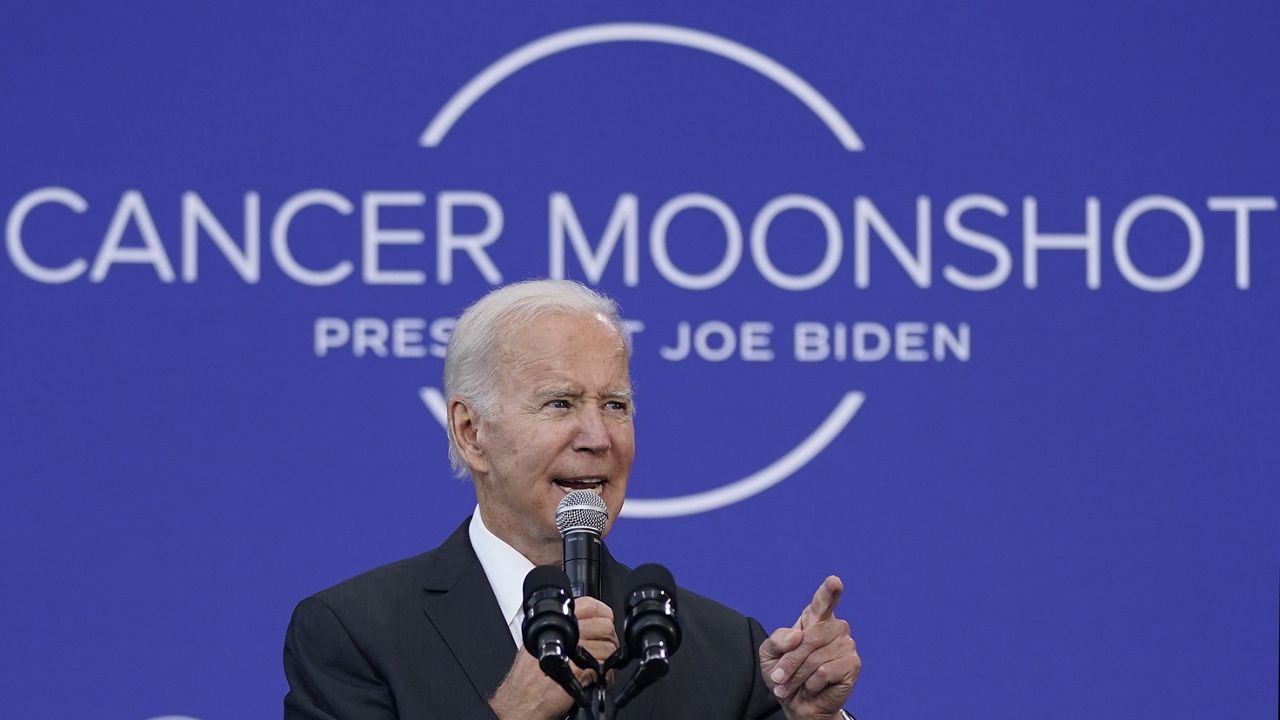The Biden administration announced Friday a new rule establishing first-ever staffing minimums for nursing homes that accept Medicaid and Medicare in order to continue to receive federal funding.
The landmark announcement -- aimed at improving the lives of the more than 1.2 million nursing home residents across the country -- makes good on a pledge President Joe Biden made in his 2022 State of the Union address, in which he slammed investors in nursing homes for driving down quality while increasing costs.
"Despite nursing homes receiving nearly $100 billion annually from American taxpayers, too many facilities are understaffed, which can result in severe illness and even death for residents," President Joe Biden wrote in an op-ed for USA Today on Friday. "Those vulnerabilities were exposed during the pandemic, when more than 200,000 nursing home residents and workers died from COVID-19. And in recent years, more private-equity firms have been buying up nursing homes and slashing key staff to cut costs and make bigger profits, endangering the safety of their residents in the process."
Under the new rule, the Centers for Medicare & Medicaid Services would set a federal floor for staffing "so that nursing home owners could not slash staffing to unsafe levels," including having a registered nurse on-site at all times. According to the Department of Health and Human Services, nursing homes would need to provide residents with 0.55 hours of care from a registered nurse daily, as well as 2.45 hours of care from a nurse aide, which greatly exceeds the current standards in nearly every state across the country.
“Establishing minimum staffing standards for nursing homes will improve resident safety and promote high-quality care so residents and their families can have peace of mind,” HHS Secretary Xavier Becerra said in a statement. “When facilities are understaffed, residents suffer.
"They might be unable to use the bathroom, shower, maintain hygiene, change clothes, get out of bed, or have someone respond to their call for assistance," he added. "Comprehensive staffing reforms can improve working conditions, leading to higher wages and better retention for this dedicated workforce.”
And in an effort to expand the nursing home workforce, CMS and the Health Resources and Services Administration announced a new campaign to recruit, train, retain, and transition workers into nursing home careers, including $75 million in scholarships and tuition reimbursement.
"These announcements are the latest in my administration’s effort to make nursing homes safer and to make sure taxpayer dollars are well spent," Biden wrote in his op-ed. "We’ve increased transparency and accountability for nursing home owners, gone after fraud and abuse and more. We also remain focused on supporting high quality care at home. That’s why in April, I signed an executive order to support caregivers, building on prior actions and investments in home and community-based care."
"As a country, we’re delivering a clear message to the nursing home industry: no more padding profits on the backs of residents and nurses. If you tell families you’ll take care of their loved ones, then follow through," the president continued. "That’s how we build a long-term care system where loved ones can age with dignity, where people with disabilities can receive the care they need in the setting of their choice and where there is a pipeline of health care workers into good-paying jobs – that include the free and fair choice to join a union. "
But some industry figures were alarmed by the regulations, with one calling the proposals "unfounded, unfunded, and unrealistic."
"It is unfathomable that the Biden Administration is proceeding with this federal staffing mandate proposal," said Mark Parkinson, formerly the Democratic governor of Kansas and now President and CEO of the American Health Care Association.
"Nursing homes are facing the worst labor shortage in our sector’s history, and seniors’ access to care is under threat," Parkinson said in a statement. "This unfunded mandate, which will cost billions of dollars each year, will worsen this growing crisis.
"It requires nursing homes to hire tens of thousands of nurses that are simply not there," he continued. "It then penalizes us and threatens to displace hundreds of thousands of residents when we can’t achieve the impossible. Already, hundreds of nursing homes across the U.S. have closed because of a lack of workers."
In a statement, Katie Smith Sloan, president and CEO of LeadingAge, a community of nonprofit aging services providers, wrote: "To say that we are disappointed that President Biden chose to move forward with the proposed staffing ratios despite clear evidence against them is an understatement."
"We share the Administration’s goal of ensuring access to quality nursing home care," she said. "This proposed rule works against that shared goal. One-size-fits-all staffing ratios don’t guarantee quality, as the Administration’s own Abt research findings made clear. That aside, it’s meaningless to mandate staffing levels that cannot be met."
"Nonprofit and mission-driven nursing homes will be forced to reduce admissions or even close if this rule is finalized—a needless outcome that will cause older Americans and families to suffer," she added.
The new rules, which will enter a public comment period, will take years to implement.








